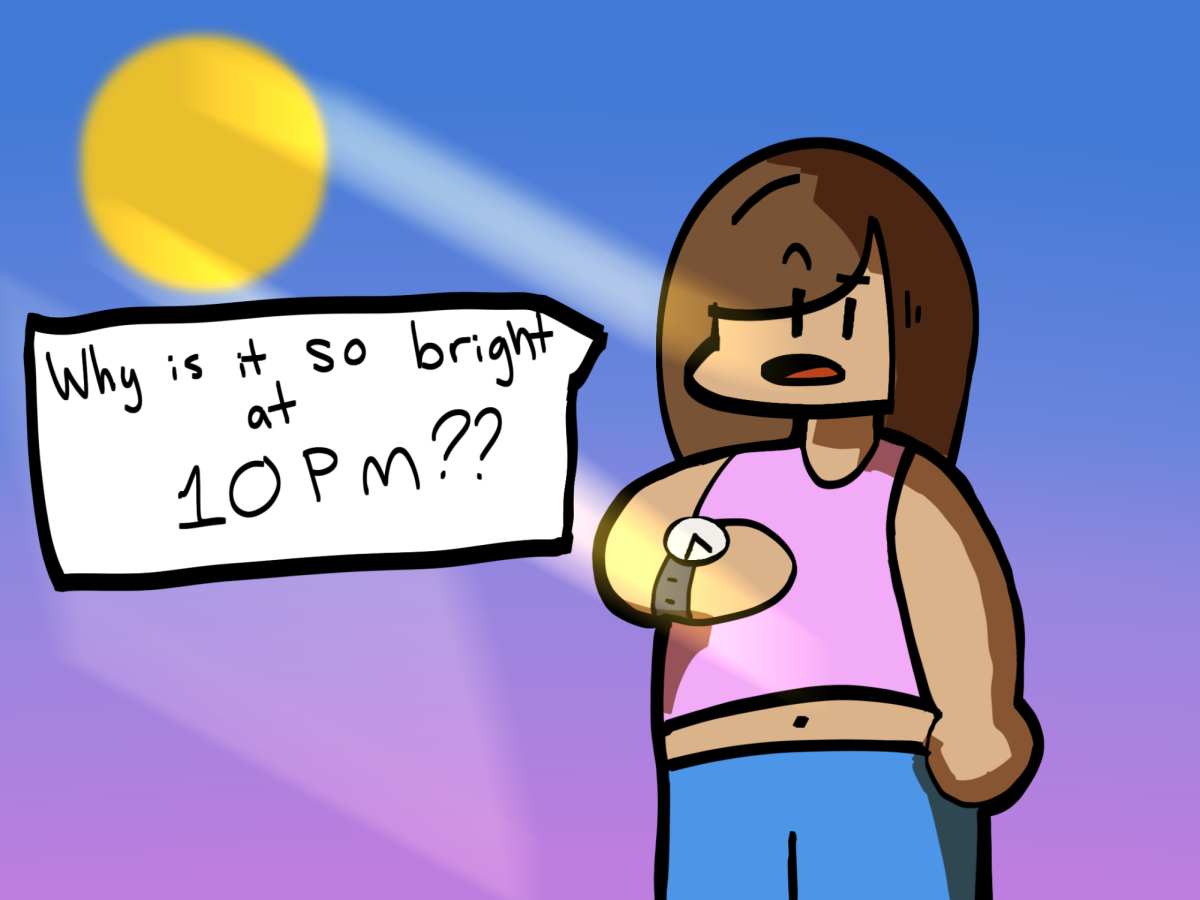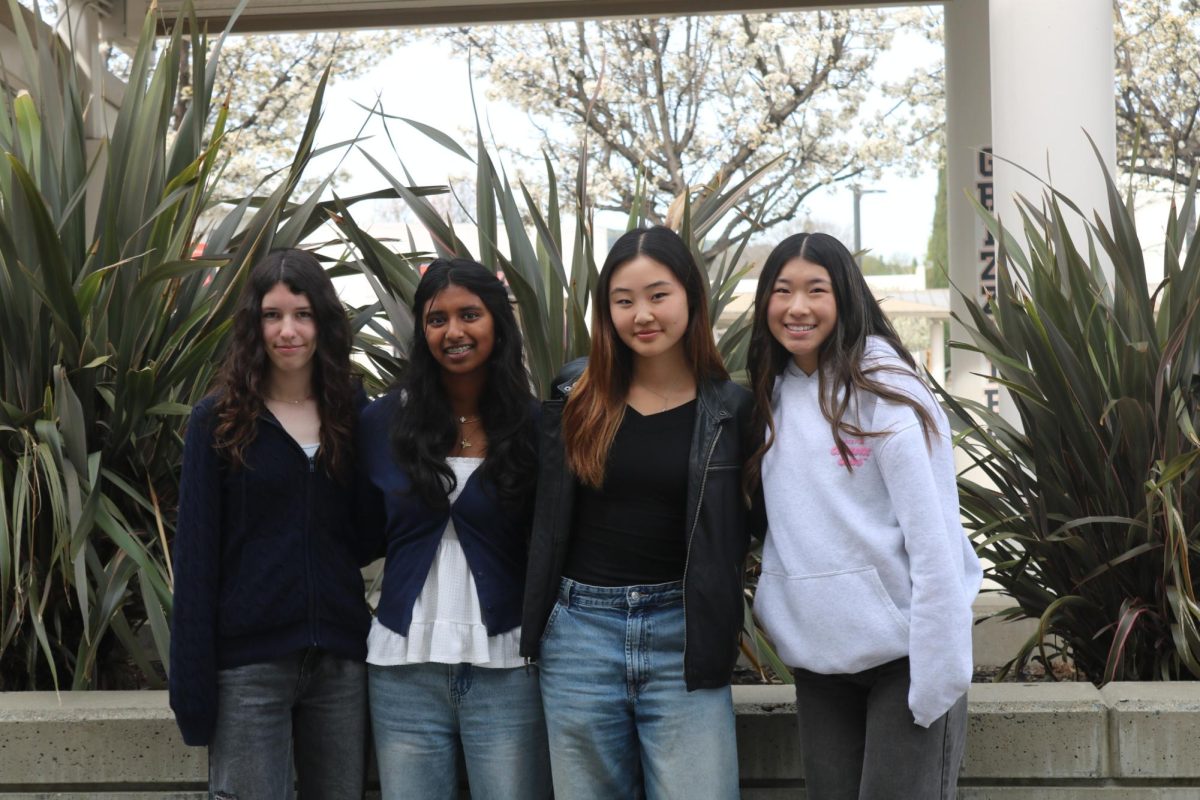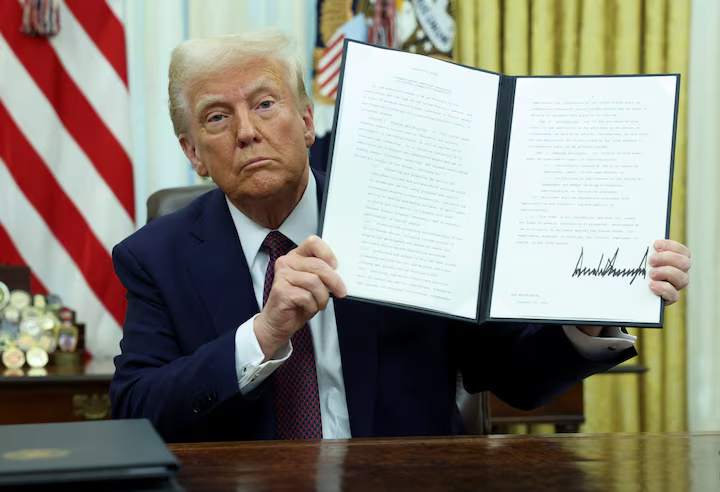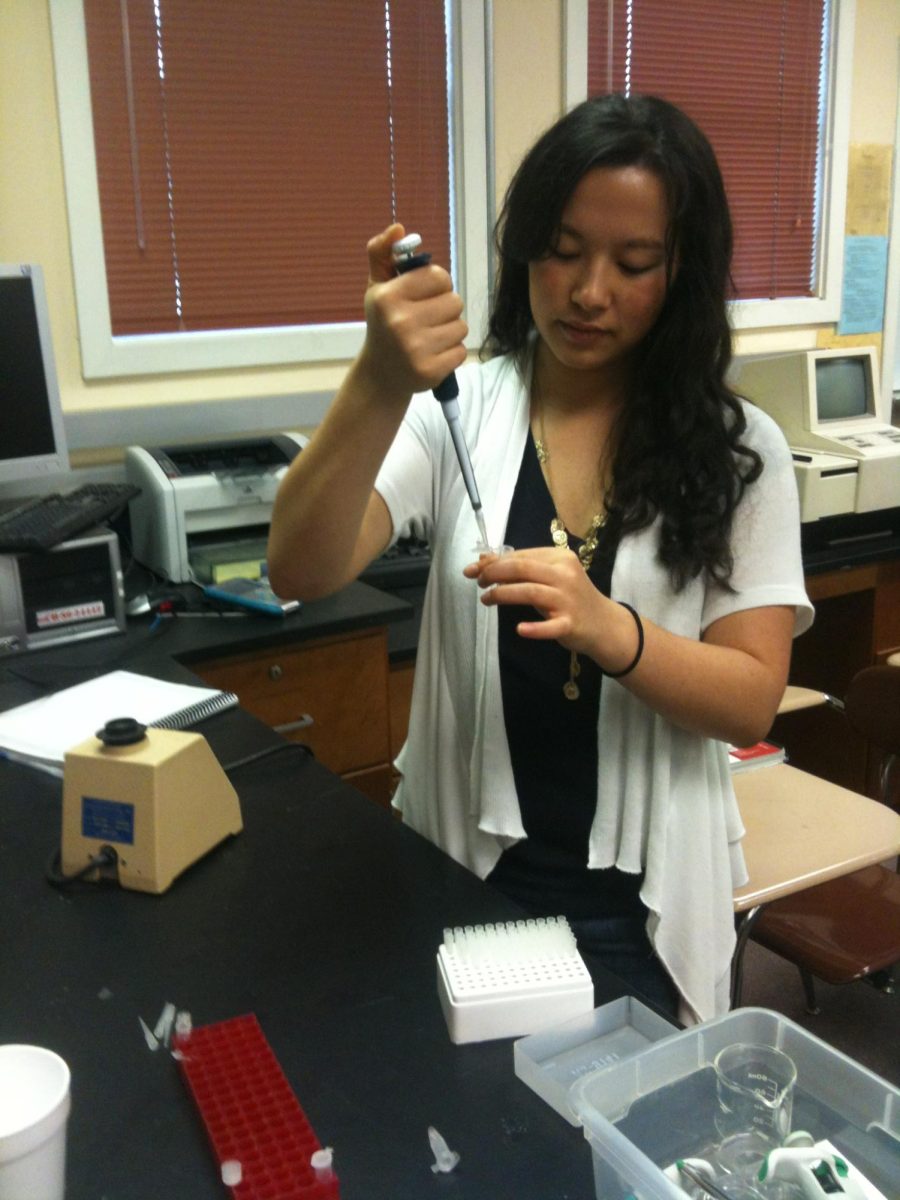For every student, there is a presidential election that defines their high school years. This is our presidential election. One aspect of every election that grabs everyone’s attention and helps determine the election’s outcome is the debates. This is my analysis of the three presidential debates between President Barack Obama and Republican challenger Mitt Romney, and the one vice presidential debate between Vice President Joe Biden and Romney’s running mate Paul Ryan.
Final Presidential debate Oct. 22 at Lynn University in Boca Raton, Fla.
While the Republican party wished that Romney had been more aggressive for the final presidential debate, the Democrats celebrated an aggressive finish for Obama.
Media outlets from both the conservative and liberal sides battled out the outcome of the debate. In a Huffington Post poll on which candidate won the debate, 48.5 percent gave the win to Obama, and 33.9 percent gave it up to Romney.
There is a huge margin of undecided voters, although it is not of much surprise. The debate was a long round of jabbing, and each candidate won an equal amount of hits. It is very hard to pick a clear winner.
Romney mentioned that the Navy was smaller than ever and the fact that we have fewer ships than we did in 1916.
“..Well Governor, we also have fewer horses and bayonets,” Obama quipped in response. “Because the nature of the military has changed. … The question is not a game of Battleship or counting ships. It’s what are our capabilities.”
The President was quite heavily critical of Romney’s policy during the debate. On Romney’s somewhat questionable plans for foreign policy, the President attacked, “When it comes to our foreign policy, you seem to want to import the foreign policies of the 1980s, just like the social policies of the 1950s and the economic policies of the 1920s.”
Romney addressed his contempt for being constantly attacked. “Attacking me is not an agenda,” he said. “Attacking me is not talking about how we’re going to deal with the challenges that exist in the Middle East, and take advantage of the opportunity there, and stem the tide of this violence.”
Obama criticized Romney by making the wrong decisions in the past.
“I know you haven’t been in a position to actually execute foreign policy, but every time you’ve offered an opinion, you’ve been wrong,” Obama said. “You said we should have gone into Iraq, despite that fact that there were no weapons of mass destruction.”
During the debate, it became very clear that both candidates had almost identical views on foreign policy. This contributed to a lot of confusion as to who did better. They were both arguing for the same stance.
“There have been times, Governor, frankly, during the course of this where it sounded like you thought that you’d do the same things we did but you’d say them louder and somehow that would make a difference,” Obama said.
On the subject of Iran, Romney claimed Iranian President Mahmoud Ahmadinejad incited genocide against the Israeli people.
“I’d make sure that Ahmadinejad is indicted under the Genocide Convention. His words amount to genocide incitation,” Romney said. “I would indict him for it.”
Where is this “genocide” happening right now? The Iranian president merely exhibited his contempt for another country, he had not in any way, shape, or form conducted a “genocide.” Romney, would theoretically be attacking the unalienable right to the freedom of speech.
Romney also threw in criticism of Russia because it does not cooperate with the U.N.
“I’m not going to wear rose-colored glasses when it comes to Russia, or Mr. (Russian President Vladimir) Putin. And I’m certainly not going to say to him, I’ll give you more flexibility after the election. After the election, he’ll get more backbone,” said Romney.
Obama countered with the fact that Romney’s policy is once again old and used
“A few months ago when you were asked what’s the biggest geopolitical threat facing America, you said Russia, not al Qaeda. You said Russia. And the 1980s, they’re now calling to ask for their foreign policy back because, you know, the Cold War’s been over for 20 years,” the President countered.
Bob Schieffer from CBS News received overall positive results for moderating the debate. He conducted the debate fluidly, and stayed out of the candidate’s ways. He wasn’t very forceful at moments, but he is also considered with leniency due to his old age.
Second Presidential debate on Oct. 16 at Hofstra University in Hempstead, N.Y.
For the second presidential debate between Obama and Romney, the President was prepared for his comeback and was fully engaged after a lackluster first debate. Romney repetitively interjected Obama’s criticisms of him, and seemed to come off as childish. Both candidates were challenged with Libya, the economy, civil rights, and much more.
The most controversial topic of the night was on the Sept. 11, 2012, attacks on the U.S. consulate in Benghazi, Libya. Obama recollected words he had spoken at the Rose Garden the day after the attacks.
“No acts of terror will ever shake the resolve of this great nation, alter that character, or eclipse the light of the values that we stand for,” Obama said. “Today we mourn four more Americans who represent the very best of the United States of America. We will not waver in our commitment to see that justice is done for this terrible act. And make no mistake, justice will be done.”
In an effort to criticize Obama for not responding to the attacks efficiently, Romney stated, “ I — I — I want to make sure we get that for the record, because it took the president 14 days before he called the attack in Benghazi an act of terror.”
At this exact moment, Crowley fact-checked Romney and agreed with Obama that the “act of terror” had been acknowledged during the Rose Garden event on Sept. 12.
According to the Reuters/Ipsos online daily tracking poll, Obama was leading 50 percent to 47 percent right after the debate, with the remaining 3 percent still undecided. It is clear that this debate was also a means to grab undecided female voters, from the stances on abortion and contraception, to female employment.
Another second controversial statement of the night was made by Romney when he explained his advocacy of integrating women into the political workforce. Romney stated that when he had become governor of Massachusetts, he searched for qualified female employees, but they were very hard to find.
“I went to a number of women’s groups and said, ‘Can you help us find folks,’ and they brought us whole binders full of women,” said Romney.
“Binders full of women” has spurred a movement, from trending on twitter to becoming the third most searched item on Google.
Romney called out the president on his pension, in an effort to deflect blame from his overseas investments in China.
He asked the president if he had looked at his pension lately, and Obama incited laughter quipping, “You know, I don’t look at my pension. It’s not as big as yours so it doesn’t take as long.”
Romney was able to successfully play on the fact that Obama had been president for the past four years, but the country is still in recession. He is also very lenient on contraceptive policy for a conservative.
“Every woman in America should have access to contraceptives and the president’s statement on my policy is completely and totally wrong,” said Romney.
In the public eye, the star of the debate was once again the moderator. CNN correspondent and anchor Candy Crowley is an intelligent, quick on her feet examiner, and she was never pushed around. She kept both candidates in check, and always kept her cool. Her biggest moment was when she fact-checked Romney over Obama’s Rose Garden statement. Conservatives believe she was out of her place in pointing that out, and it needs to be reserved for analysis. To Obama supporting liberals, she is a hero.
Vice Presidential debate on Oct. 11 at Centre College in Danville, Ky.
The vice presidential debate between Biden and Ryan was moderated by ABC reporter Martha Raddatz, and was built around both domestic and foreign policy. The two men fought to a solid draw, each with their own strengths and weaknesses.
Biden seemed at home in front of America, and came off as everything Obama hadn’t been during the first debate. He delivered an aggressive and combative response which
also came off as somewhat rude. He openly smirked, gestured, and interrupted Ryan, calling his criticism “bluster and loose talk.”
Biden was quick to compare Ryan to the 2008 vice presidential candidate Sarah Palin, and when Ryan compared his tax plan to democratic icon Kennedy, Biden quipped “Oh, now you’re Jack Kennedy?”
Ryan led an offensive attack on Obama’s stimulus until Biden reminded him that he in fact had wrote two letters to the Obama administration requesting stimulus funds.
Both candidates had opposing views on the war in Afghanistan. Biden favored a direct drawing of all troops, and he promoted the individuality of the Afghan army. Ryan preferred a drawing based on security and welfare conditions and stabilization of the middle east.
The conservative media focused on Bidens “rude behavior” and his countless smirks. News website Drudge’s headline was “Smile, Smile, Smile.” The liberals made a point of Biden having dominated the debate with his fluid rebuttals and confidence. Online journal Huffington Post headlined “Biden’d: Vice President Biden won tonight’s debate.”
The most praise went to Raddatz for her direct questioning and challenging of candidates when they did not answer. She had a much different dynamic than the previous moderator, Jim Lehrer. USA Today reported, “You pick a tough moderator, you get a tough debate. And odds are, you won’t find one much tougher — or who performed much better “
First Presidential Debate on Oct. 3 at University of Denver in Denver, Colo.
The first debate between Obama and Romney was moderated by former PBS newscaster Jim Lehrer and revolved around domestic policy. According to polls and numerous critics, the debate was a solid win for Romney, who earned high marks for his aggression over Obama’s significantly mute performance. Romney was on the offensive, contrary to Obama’s defensive position.
The most controversial line of the night was delivered when Romney spoke of cutting government funding to PBS.
“I’m sorry Jim, but I’ll cut funding to PBS. I love Big Bird, I actually like you too, but I’m going to stop borrowing money from China to pay for things we don’t need,” stated Romney.
Romney accused the president of having doubled the deficit instead of cutting it in half, but Obama inherited a $12 trillion deficit when he became president. For the duration of his presidency, the deficit did not go over $14 trillion, and during this fiscal year it was reduced back to $1.2 trillion. Obama had not kept his promise, but Romney was also proven wrong in his attack.
Obama was weak in defending the stimulus spending for economic recovery, or arguing for infrastructure reform. Romney excelled in style and fluidly attacked the high unemployment rate, weak economic growth, and Obama’s health plan.
Romney also had clever one-liners, such as when he acknowledged the 20th wedding anniversary of the president and his first-lady, which was on the day of the debate.
“I’m sure it’s the most romantic place you can imagine, here with me,” said Romney.
By far, the most criticism of the night went to Lehrer for his moderation of the debate. The former newscaster had moderated 12 debates in the past, and was unable to keep the candidates in line.
Both Obama and Romney went well over their allotted time frames. Obama used 42 minutes and 50 seconds of speech, whereas Romney only used 38 minutes and 32 seconds. There was also little regard for the questions that were being asked.





